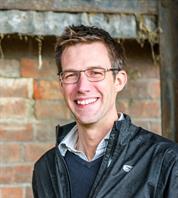We’re starting to gather evidence on community responses to the pandemic, to help shape post-crisis policy. If you are too, let’s team up.
We are in the middle of an earthquake. The pandemic is upending old expectations of government, citizens and business, creating new possibilities and dangers. How will things settle? Where will the landscape change, and where will things judder back into their previous place?
Even as the world grapples with the emergency, thought is turning to that aftermath. Yuval Noah Harari, for example, has cautioned that emergency surveillance could persist, setting back civil liberties. George Monbiot hopes that a global surge in neighbourliness will strengthen the commons. Climate experts have called for economic rescue packages to prioritise climate change. Ideas from across the team at RSA are set out here.
Yet right when this forced change means our opportunity to learn is greatest, our ability to do so is most limited. People are struggling with worry, grief, isolation and unemployment, juggling work and caring, and in some cases lacking necessities. Those in the thick of it all and adapting fastest, from ministers and civil servants to NHS staff and community groups, are inevitably among those with the least bandwidth to reflect on the long-run implications.
It will be afterwards, therefore, as the crisis eases, that these debates and possibilities will play out. But how much will we remember then of what we are doing, feeling and wanting now, of what’s working well and what’s failing? Some experiences will surely mark us forever. But how skewed will our collective memory be, and the political space for reconstruction, by our capacity to capture data in the meantime? Will big businesses and institutions, with inbuilt monitoring systems, be best able to meet government’s demands for evidence from this period to underpin future policy?
This is why, in the Food, Farming & Countryside Commission, we plan to gather evidence of changes that might otherwise go unrecorded, particularly how households, rural communities and small businesses are adapting. On the face of it, there is much to learn about the issues that are the focus of our work, for example about changes in eating and shopping behaviour, the strategic significance of food and farming, supply chain logistics and community action.
We are therefore keen to gather stories about how people are adapting, from around the UK and internationally. We will be in touch soon about this with people we visited by bike last year, with our partners, and with many other initiatives that have said they are doing similar.
But we also want to collect quantitative data on the extent and impact of such changes. Without numbers, it is hard to gauge the significance of people’s stories and to check our own confirmation bias – one risk is that we simply hear and retell stories that confirm what we thought we knew all along. Gathering data like this will help make sure people’s experiences now can make a lasting difference when attention shifts to recovery and reconstruction. Otherwise, however much their stories resonate with us individually, they may ring hollow in post-crisis policy making next to harder evidence from other quarters.
So what do we want to count? We plan to measure how people’s food shopping and eating habits are changing, and how supply chains and communities are adapting. We will focus on households, communities and small businesses, as we they are less likely than large institutions to be recording data by default. We plan to use a mix of methods, including large-scale polling to test themes emerging from diaries and social media.
However, we’re sure other organisations and researchers are doing similar, for example gathering data on changes in behaviour that affect people’s health or carbon footprints, or social attitudes to government intervention. That’s why we would like to team up – in the interests of respecting the limited time and attention of the people we will be approaching in our research, to make best use of resources, and to create the most rigorous and coherent evidence base that we can.
Are you collecting data, commissioning polling or planning other research on household, community and small business responses to the pandemic in the UK or other countries? We’re obviously particularly interested in food, farming and rural communities but keen to coordinate with wider research too. If you work in a big business or institution involved in the food and farming sector’s emergency response, please also get in touch if you can spare a moment, so we can align our methods where relevant. Please contact us by email ([email protected]) or Twitter (@FFC_Commission). As a first step, we will hold a short virtual workshop on 8th April to compare notes and potentially coordinate our efforts.
--
Tom MacMillan
Prof Tom MacMillan is Elizabeth Creak Chair in Rural Policy & Strategy at the Royal Agricultural University, and Research Director for the Food, Farming & Countryside Commission.

Be the first to write a comment
Comments
Please login to post a comment or reply
Don't have an account? Click here to register.